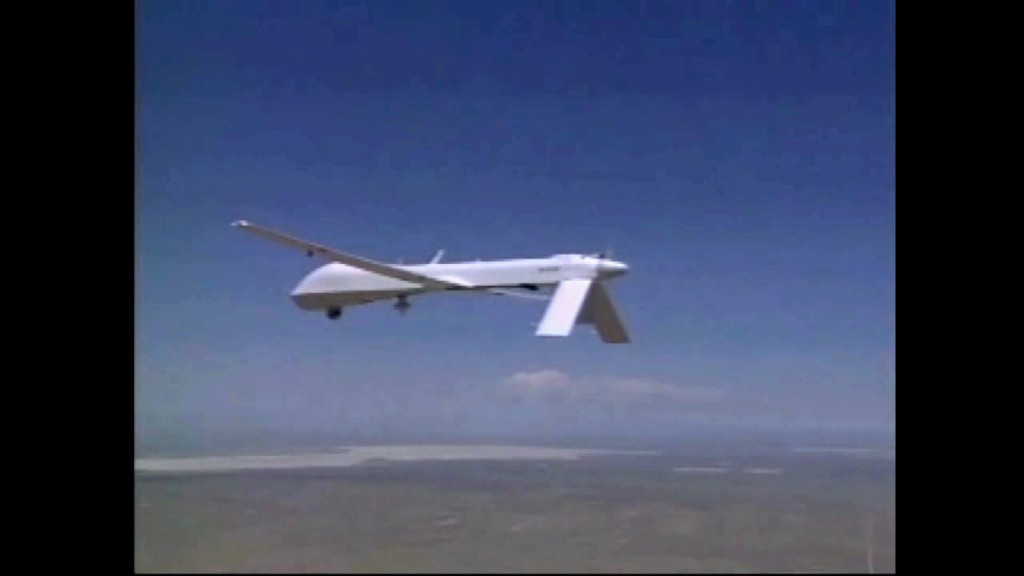Top U.S. Officials Weigh In As Drone Debate Escalates

August 16, 2011
Share
A controversial new report has reignited debate on the effectiveness of covert CIA drone strikes targeting Al Qaeda and Taliban militants in Pakistan’s tribal areas.
Last week the London-based Bureau for Investigative Journalism reported that CIA drone strikes in Pakistan’s border regions occurred 8 percent more and resulted in a higher number of civilian casualties than previously reported. It concluded that while civilian casualties declined in the past year, at least 45 civilians were killed, a number in stark contrast with the claim made by President Obama’s top counterterrorism adviser John O. Brennan in June that there hadn’t been a single civilian death in more than a year.
The bureau’s charges — the most headline-grabbing of which is that the strikes resulted in the deaths of 168 children over seven years — have garnered significant attention in the past few days, prompting U.S. officials to fire back.
Speaking only on the condition of anonymity, U.S. officials dismissed the bureau’s findings as “way off the mark” and credited the drone program with killing about 600 militants. Anonymous officials also told The New York Times that the drone program had only killed 50 non-combatants since 2001, what reporter Scott Shane described as “a stunningly low collateral death rate by the standards of traditional airstrikes.”
Proponents of the drone program argue it is less risky than on the ground combat operations and is based on significant intelligence that ensures accuracy and precision.
But high-profile former U.S. officials are raising questions about the overall effectiveness of the policy. In an op-ed in yesterday’s New York Times, former Director of National Intelligence Dennis Blair argued that drone strikes “are no longer the most effective strategy for eliminating Al Qaeda’s ability to attack us,” and went on to warn that militants killed by drones will only be replaced. “The group’s structure will survive and it will still be able to inspire, finance and train individuals and teams to kill Americans,” he wrote.
Though Blair did not assess the rate of civilian casualties, he noted that “news media accounts of heavy civilian casualties are widely believed” in Pakistan, further fueling anti-Americanism and eroding America’s ability to work with Pakistan in the fight against Al Qaeda.
Blair’s argument echoes what Robert Grenier, the former head of the CIA’s counter-terrorism center, told FRONTLINE in an interview for Kill/Capture. Grenier questioned whether the drone program has become contradictory and counterproductive, posing the question: “By launching those attacks, are we creating more militants than in fact we are killing?”
Drone strikes in Pakistan’s tribal areas have been a key part of American strategy in Afghanistan and Pakistan. Since taking office in 2009, President Obama has dramatically expanded their use. The program is considered successful enough that, according to the Wall Street Journal, the CIA is moving to establish a similar program in Yemen.
UPDATE: On Tuesday, Defense Secretary Leon E. Panetta responded to Blair’s criticism, saying the strikes conducted have been “very effective at undermining Al Qaeda.” He added, “Those that are suggesting somehow that this is a good time to pull back are wrong.”
Bonus Video: Taking Out the Taliban; Home for Dinner
Related Documentaries
Latest Documentaries
Related Stories
Related Stories
Explore
Policies
Teacher Center
Funding for FRONTLINE is provided through the support of PBS viewers and by the Corporation for Public Broadcasting, with major support from Ford Foundation. Additional funding is provided the Abrams Foundation, Park Foundation, John D. and Catherine T. MacArthur Foundation, Heising-Simons Foundation, and the FRONTLINE Trust, with major support from Jon and Jo Ann Hagler on behalf of the Jon L. Hagler Foundation, and additional support from Koo and Patricia Yuen. FRONTLINE is a registered trademark of WGBH Educational Foundation. Web Site Copyright ©1995-2025 WGBH Educational Foundation. PBS is a 501(c)(3) not-for-profit organization.




















